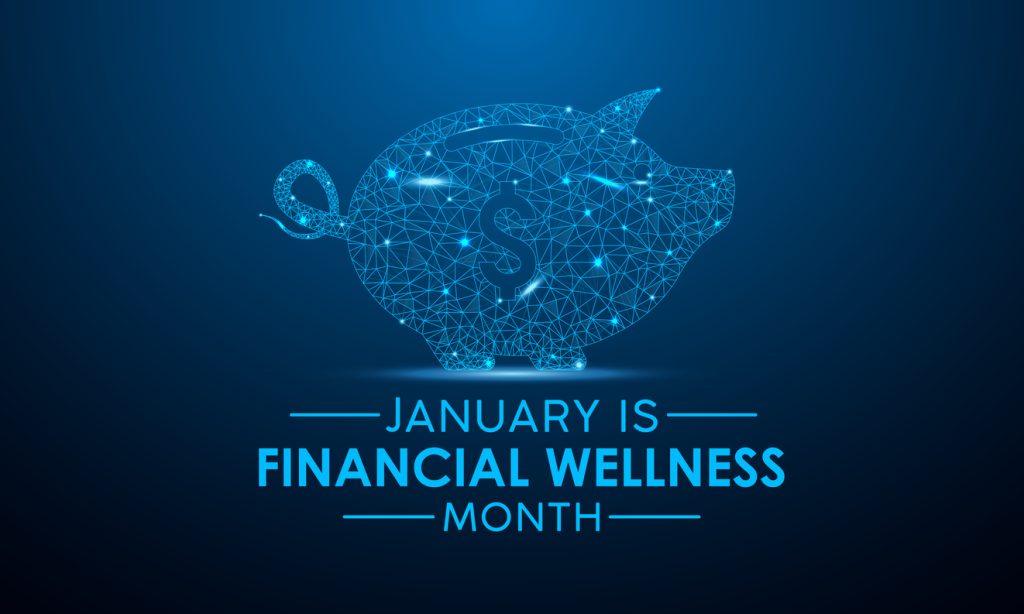
January is Financial Wellness Month! Financial wellness is the ability to meet one’s basic needs and manage money for the short and long term. If last year was not the best year for you financially, you can take some steps now to improve your financial wellness. Think about what you really want in life and create a financial plan for 2024 that reflects this. Although you may need to make some sacrifices, it will ultimately help you reduce your financial stress, increase peace of mind and get you closer to your financial goals.
Some top areas to examine and include in your plan:
- Create A Budget, Reduce Expenses – A budget will help you align your spending to your goals and reduce financial stress. Track every penny you spend for at least a week or, even better, a month. Review your spending habits and take note of where and what your money is going to. This will help you eliminate unnecessary spending costs. Then, start budgeting for the things that are truly important to you.
- Pay Down Debt – After reviewing your spending habits and making adjustments, use the extra money saved to pay down debt. Reduce unnecessary expenses (shopping, going out to eat, traveling, entertainment). It won’t happen overnight, but with time, you will slowly begin to chip away at the debt and reduce it.
- Increase Savings & Emergency Funds – Increase your savings whenever possible. The standard rule of thumb is to save 20% from every paycheck. Having a comfortable amount of money saved can help you in various ways – including for emergencies. Create an emergency fund and save at least 3-6 months’ worth of essential expenses by funding it regularly – as if you were paying a regular bill.
- Increase Investments For The Future – Planning for the future is important, especially when it comes to accounts with tax benefits. A 401(k) is a great place to start saving because it is free money your employer gives you for contributing to your retirement account. Claiming it should be your top priority in 2024. Speak to your employer to learn about how your company matching formula works and determine how much you must set aside each pay period to claim the full match. Individual Retirement Accounts (IRAs) are also great options for those who don’t have access to a 401(k) through their employer. They’re also good fits for those who want more freedom to invest how they want. These accounts allow you to choose when to pay taxes on your savings.
- Check Credit Reports – It will be helpful for you to obtain a copy of your credit report to view your current credit score and history. It is important to do this at least once a year. The data in these reports influence your credit score. Your credit report determines how much money you will spend on interest for loans, credit cards, auto and home financing, etc. The report will let you know if you have any debt you need to tackle to increase your credit score and build a better credit history. You will also want to review the reports for any errors that can occur and activity from potential identity theft.
Life can throw many obstacles at us. For many, improving financial wellness can sometimes feel like being on a roller coaster ride – many twists and turns! Improving your financial wellness requires patience, effort and diligence. Taking the time now to properly plan, and sticking to that plan, can have you celebrating a successful financial year in 2024!

